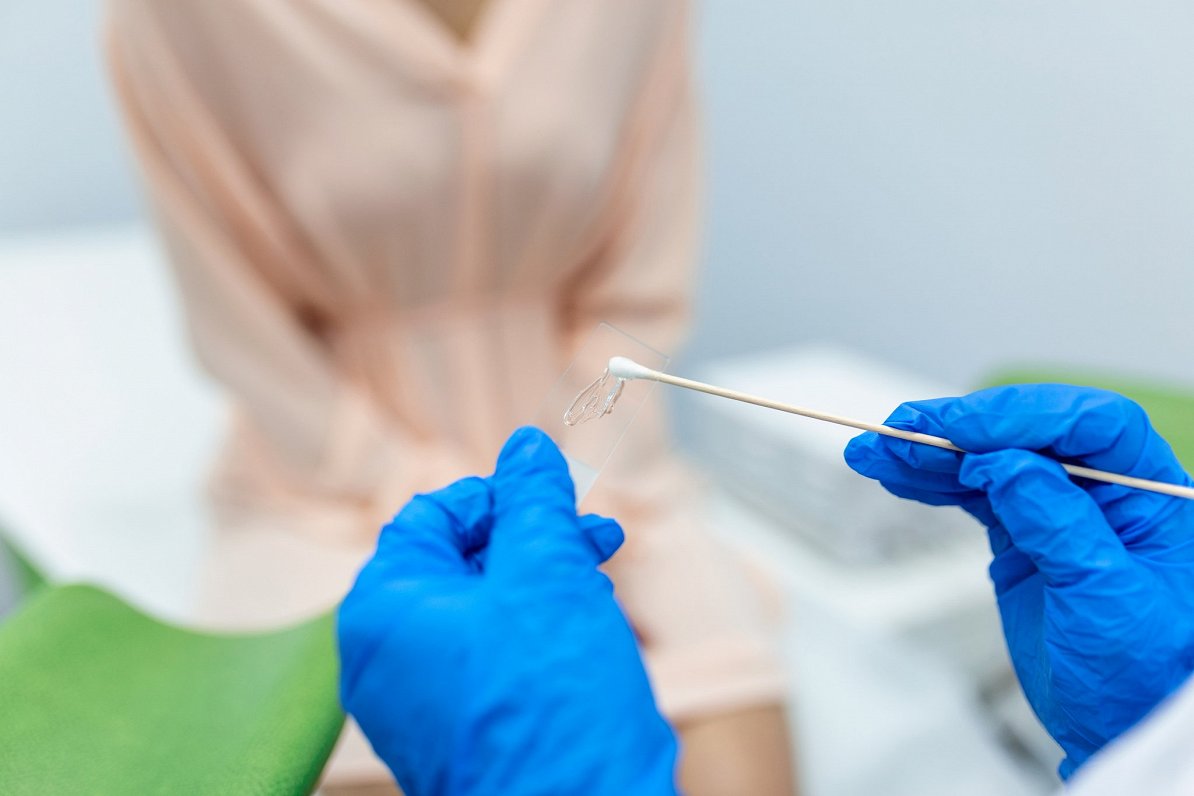January is cervical cancer awareness month. According to the World Health Organisation (WHO), it is possible to eradicate this cancer, but it is still very common in women in Latvia.
"I have to say – I don't know what it is. Because when I went to school, which was about a decade ago, as far as I can remember - in biology classes, such things weren't talked about," says 27-year-old Lelde. She has been found infected with human papillomavirus (HPV) after screening for cervical cancer. When further tests were carried out, Lelde learned that there had also been a change in precancerous cells in the cervix.
The state-paid screening is part of a strategy to combat cervical cancer.
On average, 200 to 250 new cases of cervical cancer are detected annually in Latvia. Most are discovered in advanced stages because early diagnostics have not been carried out.
The WHO believes cervical cancer can be eradicated. According to the WHO strategy, 90% of girls under the age of 15 should be vaccinated, 70% of women tested until the age of 35, and 90% of women at pre-cancer stage should be given treatment.
"In Latvia, this cancer is the second most common in women under the age of 45. So, young women," said Kristīne Pčolkina, head of the Latvian cervical cancer education foundation. According to her, the prevalence is very high.
"On average in Europe, it is 13 cases per 100,000 women. According to WHO estimates, it is 26 cases per 100,000 in Latvia, thus twice as many as in Europe."
With these indicators, Latvia ranked first in Europe in 2018. Pčolkina explains that the high rates are due to the low public responsiveness and understanding of cancer prevention, as well as an unsorted diagnostic algorithm.
In recent years, there have been improvements. Since 2009, the state has been paying for cervical cancer screening for women over 25 once every three years. It detects whether there is a human papillomavirus present in the body, which causes 99% of cancers of this type. This is a significant improvement because in this way a woman learns about an increased risk in a timely manner and can take the necessary treatment. Anete, 26, was also expecting such a letter last year.
"I knew beforehand that such letters were being sent out at 25. And when I was 25, I was also looking forward to that letter [..]. I checked my mailbox every now and then, but the letter didn't come. It was about half a year before I realized the letter might have strayed. I contacted the National Health Service to make sure it had been sent out. I found out the letter had been sent out months ago, but it hadn't arrived," said Anete.
After a lengthy effort to obtain it through a general practitioner or gynecologist, Annette received the letter and underwent an examination. And she too found she had human papillomavirus.
The National Health Service (NVD) is responsible for sending these letters. It explains that sometimes there are problems getting them to the recipient. The reasons are two: either it strays in the mail or the addressee does not reside at the declared address.
The topic was also brought some time ago by gynecologists as responsiveness to state-paid screenings was relatively low - only a third of the recipients of the letters responded. According to the Disease Prevention and Control Center (SPKC), a significant increase in responsiveness was achieved in nine months last year. The state-paid test was carried out by 77% of women invited. Gynecologist Kristīne Pčolkina said part of this was because letters were sent through an e-address, as well as campaigning by the education foundation.
Gynecologists stress that often women don't show up for tests either because of a lack of understanding. Lelde, 27, also said she did not know how cervical cancer occurs. Both Lelde and Anete stress that it is unfortunate that such risks are not told about at school. Again and again, doctors stress the importance of health education, but the issue is still not getting through to policymakers.
Lelde was also found to have a precancerous change in stage one, which means the damage needs to be monitored and tested once a year. And during this period, it's essential that a woman gets vaccinated against HPV because it reduces the risk of both contracting other types of virus and getting cancer.
If you don't get vaccinated in your teens, then you have to do it for your money. And it's expensive -- one dose of the vaccine costs under 200 euros. The full vaccination currently requires two doses.
Much more work is needed to achieve WHO's goals. Vaccination volumes need to be increased, groups of state-paid beneficiaries expanded, and the public should be educated on why testing is mandatory.
Health Minister Hosams Abu Meri (New Unity) said that work is underway in the Ministry to improve both the prevention program and treatment. Although the introduction of comprehensive health training remains a sore issue and is not foreseen in the near future, the Minister explains that materials are regularly prepared to raise public awareness.
But more active involvement of family doctors in patient outreach is also needed, says Abu Meri. There are also talks about options for expanding state-paid vaccinations.




























